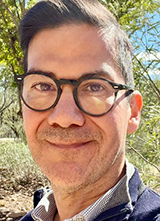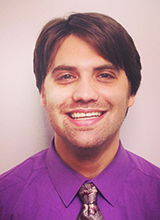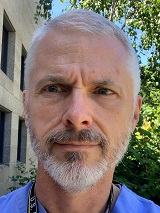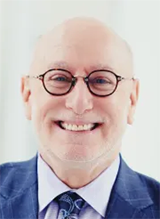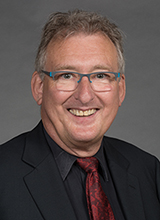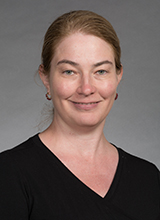My research has focused on the clinical and epidemiological study of brain aging, Alzheimer’s dis-ease (AD), and, most recently, mild traumatic brain injury (mTBI).
The epidemiological study of aging and AD. Over the past 20 years, I have pursued studies investigating the putative risks and protective factors for AD in a large community-based longitudinal cohort known as Adult Change in Thought (ACT). I have used the ACT, which is led by Drs. Eric Larson and Paul Crane, to characterize the associations between an array of risk factors, ranging from cardiovascular traits to depression, and both the incidence of dementia and the neuropathological changes seen at autopsy. In collaboration with experts in environmental and occupational health, I am now co-leading an NIH-funded R01 study to investigate the adverse effects of air pollution on brain aging, cerebrovascular disease, and neurodegenerative diseases.
Using biomarkers to identify the preclinical stage of AD, understand brain aging, and assess out-comes in clinical trials. The neuropathological changes of AD begin decades prior to a clinical diagnosis of AD. In collaboration with Dr. Elaine Peskind at VA Puget Sound, I have investigated several established (e.g., Ab42) and novel (e.g., E-selectin) AD biomarkers in cerebrospinal fluid (CSF) as we seek a way to improve both the early diagnosis of AD and the differential diagnosis of dementing diseases. Leveraging a large biorepository bank at VA Puget Sound, we have studied several of these CSF biomarkers in a cohort of cognitively normal subjects, and through this work, we have shown that (a) high CSF concentrations of F2-isoprostane, a biomarker for oxidative stress, are associated with poor executive function, cigarette smoking, and elevated body mass index; and (b) reduced levels of CSF brain-derived neurotrophic factor, a protein critical to the organization of neuronal networks and synaptic plasticity, are associated with poorer memory and predict cognitive decline over the next 3 years. Finally, we have established the feasibility of using CSF biomarkers, such as phosphorylated tau, as surrogate markers for AD in clinical trials during the pre-clinical stage of AD.
Primary prevention for AD: From observational study to clinical trial. The 3-hydroxy-3-methylglutaryl-coenzyme A (HMGCoA) reductase inhibitors, known as statins, decrease mortality from coronary heart disease and stroke. Our epidemiological studies found that the use of statins at relatively younger ages (e.g., prior to age 80) is associated with a decreased incidence of AD, especially in APOE ε4 allele carriers; statin exposure was also associated with fewer AD neuropathologies, especially in terms of neurofibrillary tangle burden. To provide further evidence of a potential protective effect of statins for AD, I recently completed a proof-of-concept, double-blind clinical trial in collaboration with Drs. Elaine Peskind, Eric Petrie, and Cynthia Mayer on the effects of simvastatin on CSF AD biomarkers in cognitively normal individuals. In that study, we found that simvastatin-related reductions in CSF p-tau181 concentrations may be dependent on low-density lipoprotein (LDL) cholesterol. To learn more, we will next investigate the potential disease-modifying effects of simvastatin on tau phosphorylation in persons with hypercholesterolemia.
mTBI research. Because neurodegenerative diseases like chronic traumatic encephalopathy (CTE) are the long-term consequences of repeated head injuries, I recently expanded my research interests to understand the risk of mTBI in combat Veterans with blast-related injuries for neurodegenerative diseases. To that end, I am an active member of a multidisciplinary research team at VA Puget Sound that seeks effective treatments for Veterans with mTBI. As a collaborator in this work, which is led by Dr. Elaine Peskind, I am striving to develop strategies to reduce the long-term sequelae of mTBI.
